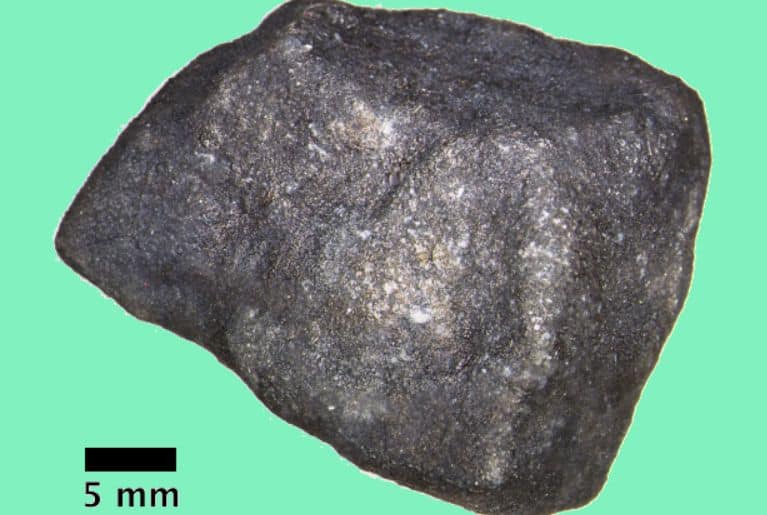Geologists have found uncontaminated organic matter in a meteorite that fell on the outskirts of Detroit in 2018.
On the evening of January 18, 2018, residents of seven states in the northeastern United States observed a flash in the sky that was comparable in brightness to the Sun. At about one in the morning GMT, a fireball dubbed Hamburg fell on the ice of one of the lakes in Michigan. Estimates showed that the diameter of the object could be from 40 to 60 centimeters, and the mass – about 50 kilograms. The magnitude of the seismic shock during the explosion reached a value of 2.0, and the researchers estimated the power of the explosion at 100 tons of TNT.
Usually, when a meteorite falls on the surface of our planet, it is almost immediately contaminated with bacteria and lichens. But due to the fact that the passage of the celestial body through the atmosphere detected a special NASA weather radar, scientists were able to quickly arrive on the site and take samples. Now they have presented the results of the study.
In total, Philipp R. Heck from the University of Chicago, together with colleagues, collected more than ten fragments of a meteorite with a total weight of about one kilogram. Petrological and chemical analysis showed that geologists have h4-type chondrite, which is about a third of iron, nickel and olivine. Only four per cent of all celestial bodies falling to Earth today belong to this type.
Analysis of helium, neon and argon isotopes (3 He, 21 Ne and 38 Ar) showed that the Hamburg meteorite had been exposed to cosmic rays for 12 million years. This makes it look like the meteorite Pribram, which fell on the territory of Poland in 1959. Geologists found a large number of hydrocarbons – that is, organic substances – in the fragments. The next most common were grey- and nitrogen-containing compounds.
Scientists are still unclear how organic compounds appeared on Earth. One theory suggests that meteorites and comets could have brought it to our planet. The work of geologists helps to learn more about celestial bodies belonging to different families and to get a more complete picture of the evolution of the solar system.
The fall of meteorites to Earth is quite common, but researchers are not always able to detect the wreckage. However, such finds have great value. Thus, the analysis of fragments of the Tagish meteorite allowed scientists to understand under what conditions it was formed, and in the Japanese meteorite, geologists found aluminum, sodium and manganese.
